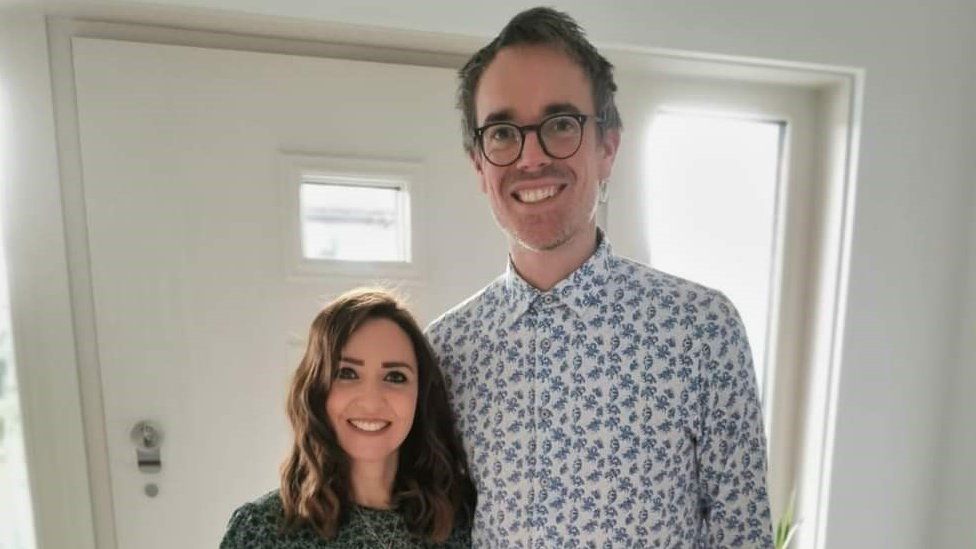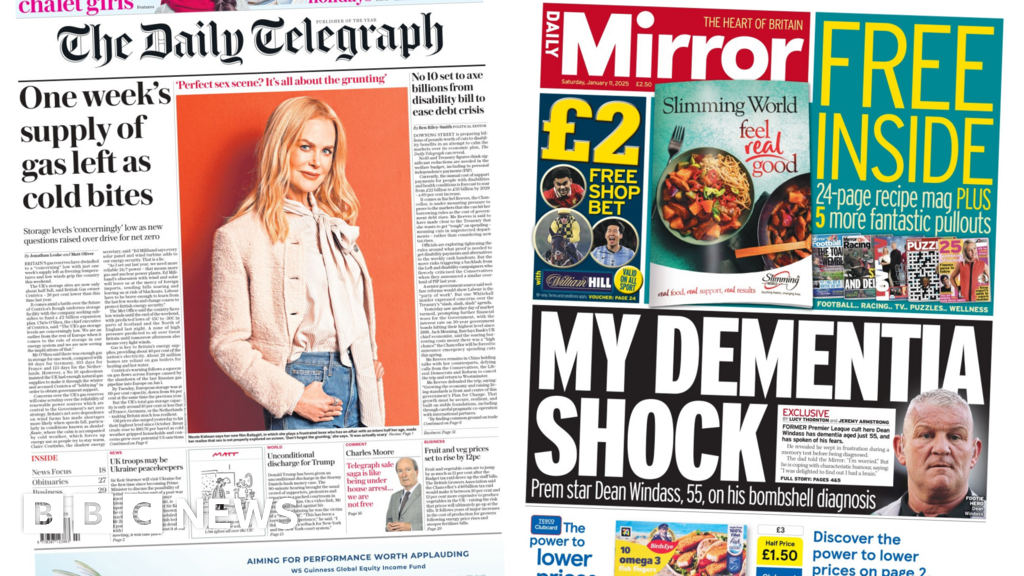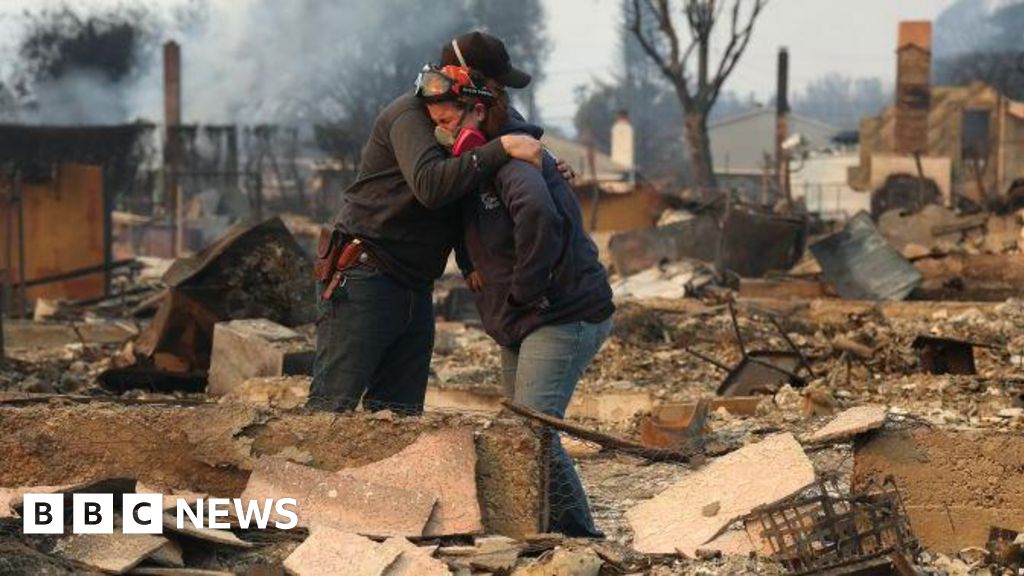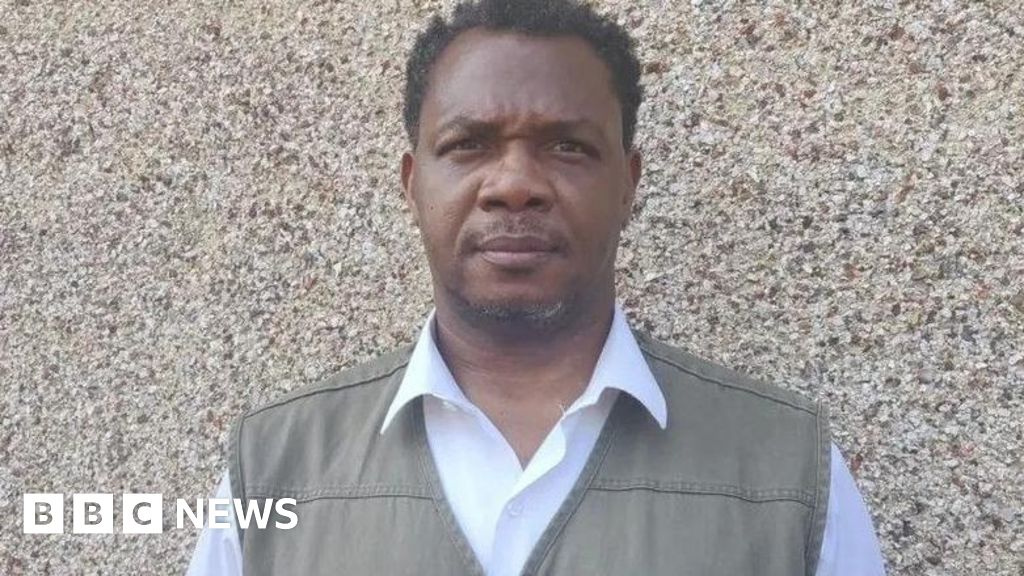 Image source, Amy Adair-McCourt
Image source, Amy Adair-McCourt
Nicky Adair died in March 2020, aged 37, and his sister has raised money for heart scans in his memory
By Patrick Magee
BBC News NI
One hundred pupils at Belfast High School have had heart scans after a former student died of sudden arrhythmic death syndrome (SADS).
Nicky Adair died in March 2020, aged 37.
He was "fully fit and healthy", according to his brother and sister, who are trying to raise awareness of the condition.
"If Nicky was screened, he could've been saved," his sister, Amy Adair-McCourt, told BBC News NI.
Along with her brother, Philip, Amy has been fundraising for the potentially life-saving scans.
They hope the scans will prevent families of those pupils who underwent the tests experiencing a loss like they did.
Philip and Amy are working with CRY (Cardiac Risk in the Young) to raise awareness of SADS
One of the first pupils to receive an electrocardiogram (ECG) scan is encouraging others to get tested.
"I was talking to a couple of my friends and no-one had any idea about it," said Dylan.
"It's good for young people to sort it out early rather than in a couple of years finding a problem."
He said he was nervous before the tests but thought the process would have taken longer and been "a bit scarier".
"In all honesty, it wasn't bad," he added.
What is SADS?
Sudden arrhythmic death syndrome is when someone dies suddenly and unexpectedly from a cardiac arrest, but the cause of the cardiac arrest can't be found.
About 500 people in the UK are affected by SADS every year.
It mainly affects young people aged 14-35.
Nicky's siblings are determined to prevent further deaths like his.
"Only through a scan like this can you detect something is there and do something about it," Philip told BBC News NI.
The ECG screenings cost £60 each.
Philip and Amy have received support since Nicky's death and are now working alongside CRY (Cardiac Risk in the Young), which provides 30,000 screenings a year.
They are trying to raise more money for more mass heart screenings, like the kind at Belfast High School.
"We thought: 'What better way than to reach out to schools to see if they could support screening the risk group of ages 14-35," said Phillip.
"If we can target locations, such as schools, to host these events in the future it would be really helpful," added Amy.
The pupils at Belfast High will receive results in two-to-four weeks to let them know if there are any abnormalities flagged during testing.
If a condition is identified, the pupil will be referred to a cardiologist that has experience in managing these conditions.
 (1).png)
 10 months ago
13
10 months ago
13


















